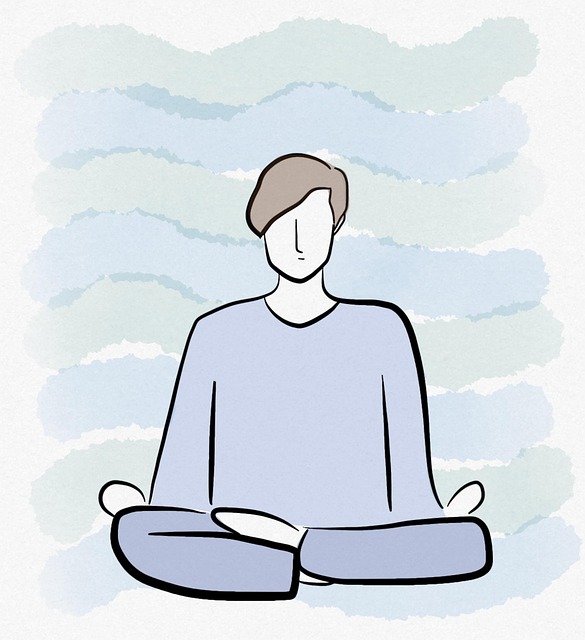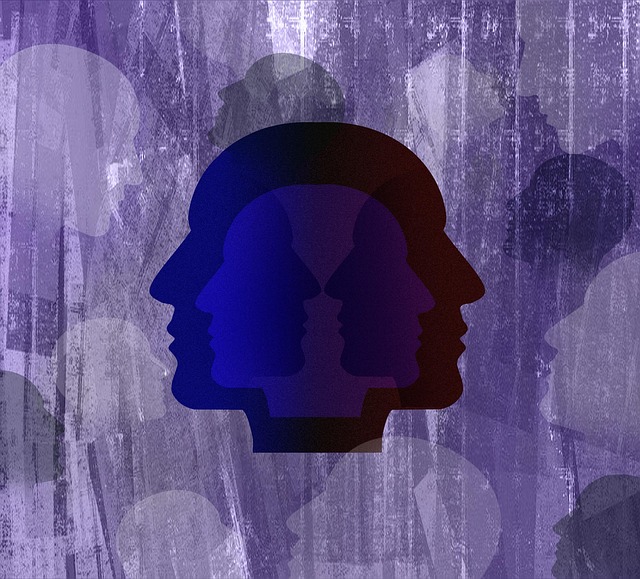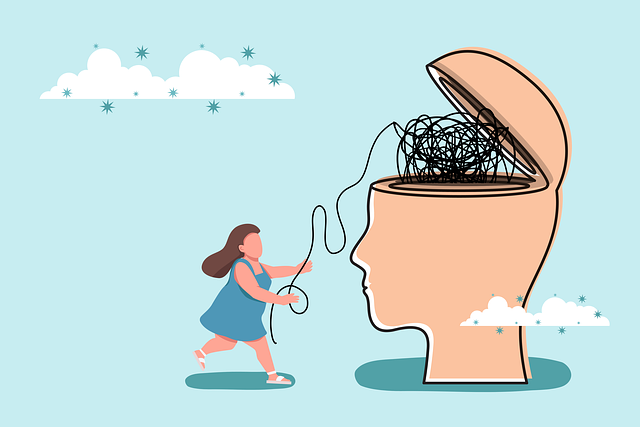Media portrayal of mental illness significantly influences public understanding, often perpetuating stereotypes or overlooking complex conditions. Denver Veterans Therapy advocates for authentic storytelling and collaboration with media creators to challenge these stereotypes. By integrating Mental Wellness Journaling, Emotional Well-being Promotion, and Compassion Cultivation techniques into creative processes, media platforms can foster a culture of support for individuals on their mental health journeys. This collaborative approach, emphasizing accurate representation and education, aims to reduce stigma, bridge the gap between media and understanding, and encourage empathy, as demonstrated by Denver Veterans Therapy's successful programs.
Mental illness representation in media is a crucial topic that shapes societal perceptions. This article delves into the current state of mental health portrayal, exploring how stereotypes and misinformation impact public understanding. We present a case study on Denver Veterans Therapy, demonstrating successful representation. Key strategies for enhancing positive mental health narratives are discussed, emphasizing collaboration between media creators, support organizations, and professionals. By fostering accurate and empathetic storytelling, we can challenge harmful norms and promote mental wellness.
- Understanding Mental Illness Representation in Media: The Current State
- The Impact of Stereotypes and Misinformation on Society's Perception
- Denver Veterans Therapy: A Case Study on Effective Representation
- Strategies to Enhance Positive Mental Health Portrayals in Media
- Fostering Change: Collaborating with Content Creators and Support Organizations
Understanding Mental Illness Representation in Media: The Current State

Media plays a significant role in shaping public understanding and perception of mental illness. Currently, representation in media often falls short of providing an accurate and nuanced portrayal of these complex conditions. Common stereotypes and stigmatizing narratives perpetuate the marginalization of individuals living with mental health challenges. This is particularly evident in mainstream television shows and movies where characters with mental illnesses are frequently portrayed as unpredictable, dangerous, or simply ignored, reinforcing outdated and harmful myths.
Such inadequate representation can hinder progress towards fostering empathy and compassion for those facing mental health issues. It’s crucial to challenge these stereotypes by encouraging media creators to collaborate with experts like Denver Veterans Therapy, who can offer guidance on authentic storytelling. By integrating Mental Wellness Journaling Exercise and Emotional Well-being Promotion Techniques into creative processes, media platforms can contribute to a more responsible and accurate depiction of mental illness. This shift in representation is essential for fostering a culture that embraces Compassion Cultivation Practices, ultimately leading to better support systems for people’s mental health journeys.
The Impact of Stereotypes and Misinformation on Society's Perception

Stereotypes and misinformation about mental illness prevalent in media can have a profound impact on society’s perception and understanding of these conditions. Often, media representations simplify complex disorders, leading to oversimplified narratives that reinforce outdated myths. This can result in further stigmatization, causing individuals struggling with mental health issues to feel isolated and ashamed. For instance, portraying characters with depression as solely helpless or showing anxiety as a sign of weakness perpetuates harmful ideas that discourage people from seeking help.
At Denver Veterans Therapy, we recognize the power of media in shaping public opinion. That’s why we advocate for more nuanced portrayals that reflect the reality of mental health experiences. By promoting compassion cultivation practices and mental health awareness, we can foster an environment where individuals feel supported rather than judged. Effective communication strategies can bridge the gap between representation and understanding, encouraging empathy and breaking down barriers to access resources like those offered by Denver Veterans Therapy.
Denver Veterans Therapy: A Case Study on Effective Representation

Denver Veterans Therapy (DVT) stands as a shining example of effective mental illness representation in media and beyond. Founded by a team of dedicated mental health professionals, DVT leverages Mind Over Matter principles and Compassion Cultivation Practices to offer specialized support for veterans facing psychological challenges. By integrating traditional therapy techniques with innovative approaches, they address the unique needs of their client base, fostering a sense of healing and belonging.
The therapy center’s success lies in its comprehensive Mental Health Education Programs Design. Through workshops, group sessions, and individual counseling, DVT equips veterans with valuable coping mechanisms and promotes mental health awareness. Their tailored approach not only empowers individuals to manage their conditions but also challenges societal stigmas associated with mental illness. By showcasing the humanizing impact of compassionate therapy, Denver Veterans Therapy inspires a broader conversation about mental wellness, setting a benchmark for inclusive representation in media and healthcare discourse.
Strategies to Enhance Positive Mental Health Portrayals in Media

Media has a significant impact on shaping societal perceptions of mental health. To challenge negative stereotypes and foster understanding, there is a pressing need for more authentic and positive portrayals of individuals with mental illness. Denver Veterans Therapy advocates for a shift in media representation, focusing on empowering narratives that showcase resilience and recovery. This can be achieved through diverse storytelling, ensuring characters with mental health struggles are not one-dimensional but complex individuals with unique experiences.
Incorporating evidence-based practices and stress reduction methods into storylines can offer viewers practical insights. For instance, highlighting emotional regulation techniques or the benefits of therapy sessions can demystify these processes. By weaving in mind over matter principles, media can inspire hope and encourage seeking professional help. Such strategies not only enhance the accuracy of mental health representation but also contribute to a more compassionate and supportive societal attitude towards individuals dealing with psychological challenges.
Fostering Change: Collaborating with Content Creators and Support Organizations

In the fight against mental illness stigma, collaboration is key. Denver Veterans Therapy leads the charge by partnering with content creators and support organizations to foster change. By bringing together diverse voices and expertise, these collaborations amplify efforts towards Mental Illness Stigma Reduction. Together, they create platforms where open conversations about mental health can thrive, fostering understanding and Compassion Cultivation Practices among the wider community.
Through engaging storytelling and accessible media, these partnerships offer valuable insights into individuals’ experiences with mental illness, promoting empathy and effective Conflict Resolution Techniques. By challenging stereotypes and sharing real-life narratives, they contribute to a more inclusive and supportive society where everyone feels comfortable seeking help, just like they would for any other health concern.
Mental illness representation in media has come a long way, but there’s still much to be done. By challenging stereotypes and misinformation through case studies like Denver Veterans Therapy and implementing strategies that promote positive mental health portrayals, we can foster a more understanding and compassionate society. Collaborating with content creators and support organizations is crucial in this endeavor, ensuring media represents the diverse experiences of individuals living with mental illness accurately and empathetically. This collective effort will not only revolutionize how we perceive mental health but also encourage much-needed conversations and support for those in need.














